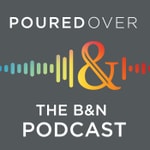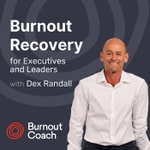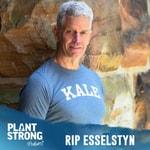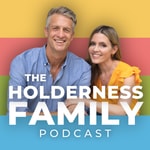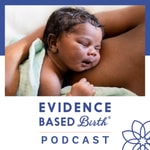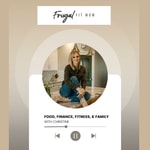Read. Talk. Grow. – Détails, épisodes et analyse
Détails du podcast
Informations techniques et générales issues du flux RSS du podcast.
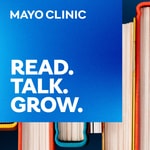
Read. Talk. Grow.
Mayo Clinic Press
Fréquence : 1 épisode/9j. Total Éps: 27

Classements récents
Dernières positions dans les classements Apple Podcasts et Spotify.
Apple Podcasts
🇺🇸 États-Unis - medicine
25/09/2024#88
Spotify
Aucun classement récent disponible
Liens partagés entre épisodes et podcasts
Liens présents dans les descriptions d'épisodes et autres podcasts les utilisant également.
See allQualité et score du flux RSS
Évaluation technique de la qualité et de la structure du flux RSS.
See allScore global : 63%
Historique des publications
Répartition mensuelle des publications d'épisodes au fil des années.
Embracing a personal, purpose-focused approach to wellness
Épisode 28
mercredi 8 novembre 2023 • Durée 33:37
We talked with:
- Gladys McGarey, M.D., is a pioneer in allopathic and holistic medical movements and continues to practice medicine even now that she is over 100 years old. She is a founding diplomat of the American Board of Holistic Medicine. She is the cofounder and past president of the American Holistic Medical Association. She lives and works in Scottsdale, Arizona. She has cared for thousands of patients and people all around the world and across all life stages from birth to death, where she inspires what she calls living medicine.
- Larry Bergstrom, M.D., is an assistant professor of medicine at Mayo Clinic in Arizona in the Division of Consultative Medicine. He is the past chair of general internal medicine in Mayo Clinic in Rochester and moved to Mayo Clinic Arizona 2006 to start the integrative medicine program. Dr. Bergstrom sees patients for whom conventional medicine has had insufficient answers, including those with chronic fatigue, chronic pain, autoimmune disease. He tells his patients that he is not so much focused on treating their disease but rather trying to find ways of helping them become healthy.
We talked about:
In this episode, Dr. Millstine and her guests discuss:
- The limits of conventional medicine. Conventional medicine can be passive, Dr. Bergstrom says: You go to the doctor and get a prescription. Dr. Bergstrom and Dr. Gladys believe in empowering their patients, engaging with them and giving them tools to improve their wellness.
- A personal approach. Stress has important negative effects on health, but you can’t simply direct someone to “Be less stressed.” In fact, Dr. Bergstrom says you can’t address stress until you fully understand someone’s story: Who they are, how they got there, what’s happened to them, and how that’s affected their ability to live.
- Finding your “juice.” Dr. Gladys wants everyone to recognize their “juice” — her term for your reason for living, your source of joy and purpose, and what gets you out of bed in the morning. Physicians often shy away from addressing this aspect of spiritual wellness, Dr. Bergstrom says, because it’s messy. But it’s essential to understand for whole-person wellness.
Can't get enough?
- Purchase the Mayo Clinic Press book “Live Younger Longer.”
- Purchase “The Well-Lived Life: A 102-Year-Old Doctor's Six Secrets to Health and Happiness at Every Age.”
- From Bookshop.org.
- From Amazon.
- From Barnes & Noble.
- Want to read more about health topics? Check out our blog.
Got feedback?
- If you've got ideas or book suggestions, email us at readtalkgrow@mayo.edu.
- We invite you to complete the following survey as part of a research study at Mayo Clinic. Your responses are anonymous. Your participation in this survey as well as its completion are voluntary.
The podcast is for informational purposes only and is not designed to replace the physician’s medical assessment and judgment. Information presented is not intended as medical advice. Please contact a healthcare professional medical assistance with specific questions pertaining to your own health if needed.
The challenges and costs of chronic illness in the U.S.
Épisode 27
mercredi 1 novembre 2023 • Durée 48:09
We talked with:
- Nicole Chung is the author of “A Living Remedy” and “All You Can Ever Know.” “A Living Remedy” was a New York Times Book Review Editors’ Choice and has already been named a Best Book of 2023 by Time, Harper’s Bazaar, Esquire, USA Today, and Booklist, among others. Chung’s 2018 debut, the national bestseller “All You Can Ever Know,” landed on over 20 Best of the Year lists and has been translated into several languages.
- Brenda Ernst, M.D., is a hematologist and oncologist at the Mayo Clinic Comprehensive Cancer Center in Phoenix, Arizona. She cares for patients with various types of malignant cancers, especially breast and ovarian cancer. After earning her medical degree at St. George's University School of Medicine in Bay Shore, New York, Dr. Ernst completed an internal medicine residency at the Orlando Regional Medical Center and a fellowship in hematology/oncology at the Mayo Clinic School of Graduate Medical Education in Scottsdale, Arizona, where she was Chief Fellow.
We talked about:
In this episode, Dr. Millstine and her guests discuss:
- The high cost of illness — and healthcare. When Nicole’s mother was diagnosed with breast cancer, Nicole was of course most worried about her mother’s life. Only later did she realize the financial fallout: insurmountable medical debt.
- When care comes too late. Many people struggling with money and healthcare coverage put off receiving earlier treatment or preventive care. Nicole’s father didn’t receive crucial treatment until the last possible moment in his diabetes, and he needed to be on dialysis. What would her parent’s lives have looked like if he had access to treatment years before?
- The tricky nature of caretaking for your caretakers. It’s a struggle to try to help parents, especially when parents want to protect their children from their hardships. Dr. Ernst says that it can be hard to ask for help if your identity is “the caretaker” or “the parent.” When we come up against a crisis, we want to reassure ourselves that we are who we have always been, but crisis changes us and our roles.
Can't get enough?
- Purchase “A Living Remedy.”
- From Bookshop.org.
- From Amazon.
- From Barnes & Noble.
- Want to read more on the topic? Check out our blog.
Got feedback?
- If you've got ideas or book suggestions, email us at readtalkgrow@mayo.edu.
- We invite you to complete the following survey as part of a research study at Mayo Clinic. Your responses are anonymous. Your participation in this survey as well as its completion are voluntary.
The podcast is for informational purposes only and is not designed to replace the physician’s medical assessment and judgment. Information presented is not intended as medical advice. Please contact a healthcare professional medical assistance with specific questions pertaining to your own health if needed.
The care and keeping of friends
Épisode 18
mercredi 30 août 2023 • Durée 51:56
We talked with:
- Laura Tremaine is an author, podcaster and influencer. She launched the "10 Things To Tell You" podcast, a show born from her realization that sharing herself online and in person pulled her out of a long season of loneliness. From the "10 Things To Tell You" podcast came her first book "Share Your Stuff. I'll Go First: 10 Questions to Take Your Friendships to the Next Level." Her second book released in 2023 and is titled "The Life Council: 10 Friends Every Woman Needs."
- Judith Engelman, M.D., is a board-certified psychiatrist who has practiced in Phoenix and Scottsdale for 40 years. Based on her vast experience in running therapy and support groups, Dr. Engelman was asked to collaborate in developing and facilitating the "Authentic Connections" groups in a research study with Mayo Scottsdale Department of Psychiatry and Arizona State University Department of Psychology. Blending her interests in individual, group and family therapy, psychopharmacology, yoga and spirituality, Dr. Engelman has always advocated for an integrative approach to healing.
We talked about:
In this episode, Dr. Millstine and her guests discuss:
- Friendship is an action. Friendship means showing up and supporting the ones you love. So if communication doesn't come naturally to you, you may want to add friendship tasks (checking in, phone calls, texts) to your to-do list. To some, that may seem like you're making friendship a chore, but it's an actionable way to make your friends a priority.
- Friendships have a spectrum of intimacy. Not every friendship has to be the soul-baring kind. Laura wants to highlight the value of relationships with co-workers, fellow soccer moms or online friends obsessed with the same TV show as you. One person can't fulfill every friendship need: Maybe you need one fun friend, a friend who brings you soup when you're sick and another friend with kids the same age.
- How do we make new friends? Though we often think of making new friends as an exhausting burden, Laura encourages us to see it for the exciting prospect it is: Finding someone who likes the most current version of you. And she encourages us to chill out a bit — aim for one good conversation with each outing. That's enough!
Can't get enough?
- Purchase "The Life Council."
- From Bookshop.org
- From Amazon
- From Barnes & Noble
- Want to read more about health topics? Check out our blog.
Got feedback?
- If you've got ideas or book suggestions, email us at readtalkgrow@mayo.edu.
- We invite you to complete the following survey as part of a research study at Mayo Clinic. Your responses are anonymous. Your participation in this survey as well as its completion are voluntary.
The podcast is for informational purposes only and is not designed to replace the physician’s medical assessment and judgment. Information presented is not intended as medical advice. Please contact a healthcare professional medical assistance with specific questions pertaining to your own health if needed.
The alcohol-breast cancer connection
Épisode 17
mercredi 23 août 2023 • Durée 34:32
We talked with:
- Clare Pooley graduated from Newnham College, Cambridge, before spending nearly 20 years in the heady world of advertising. Clare worked hard, played hard and drank even harder. By the time she was 46 years old she knew she had to go sober. She started a blog called Mummy was a Secret Drinker by way of therapy. That blog went viral and became a memoir: "The Sober Diaries." Clare then started writing fiction. Her debut novel — "The Authenticity Project" — is a New York Times bestseller and is published in 30 languages. Her second novel — "Iona Iverson's Rules for Commuting" — is out now.
- Karen Anderson, M.D., Ph.D., is an associate professor of medicine at Mayo Clinic in Phoenix/Scottsdale, Arizona. She's a medical oncologist and researcher. She focuses on breast cancer, particularly immunotherapy, treatments to reduce risk of breast cancer recurrence and using genomics to guide treatment decisions. She received her M.D. and Ph.D. from Duke University School of Medicine and was trained at the Brigham and Women's Hospital as well as Dana Farber Cancer Institute.
We talked about:
In this episode, Dr. Millstine and her guests discuss:
- Am I an alcoholic? Clare spent a lot of time Googling this question until she realized the better question was "Is alcohol proving detrimental to my life?" The word "alcoholic" has so much stigma it prevents people from getting the help they need for fear of such a serious label. Clare kept trying to moderate her drinking, but when she found herself drinking out of a "World's Best Mum" mug before noon, she realized it was time to quit.
- Breast cancer and alcohol. Alcohol is a carcinogen, and elevates risk of breast cancer as well as other types of cancer. But Clare — as well as many other educated people — have no idea about the link. And it's unclear if alcohol use among survivors increases risk of recurrence.
- The opposite of addiction is connection. Through her blog, Clare found an online community of people like her who helped support her in her drinking recovery. When she was tempted to start drinking again, she thought, "I can't let these people down." If you're thinking of giving up drinking, you don't have to do it alone! There are many people going through a similar journey.
Can't get enough?
- Purchase "The Sober Diaries: How one woman stopped drinking and started living."
- From Bookshop.org
- From Amazon
- From Barnes & Noble
- Want to read more on the topic? Check out our blog:
Got feedback?
- If you've got ideas or book suggestions, email us at readtalkgrow@mayo.edu.
- We invite you to complete the following survey as part of a research study at Mayo Clinic. Your responses are anonymous. Your participation in this survey as well as its completion are voluntary.
The podcast is for informational purposes only and is not designed to replace the physician’s medical assessment and judgment. Information presented is not intended as medical advice. Please contact a healthcare professional medical assistance with specific questions pertaining to your own health if needed.
Imagining a more inclusive world for people with autism
Épisode 16
mercredi 16 août 2023 • Durée 40:28
We talked with:
- Laurie Frankel is the New York Times bestselling, award-winning author of four novels. Her writing has also appeared in The New York Times and other publications. She is the recipient of the Washington State Book Award and the Endeavor Award. Her novels have been translated into more than twenty-five languages and been optioned for film and TV. A former college professor, she now writes full-time in Seattle, Washington where she lives with her family and makes good soup.
- Andrea Huebner, Ph.D., is a Mayo Clinic pediatric neuropsychologist and autism expert. Dr. Huebner has performed diagnostic evaluations for thousands of children with autism and is still fascinated by the uniqueness of each child’s autism experience. She is involved in advocacy aimed at prompting communities to recognize the enormous potential contributions of individuals with autism.
We talked about:
In this episode, Dr. Millstine and her guests discuss:
- The many faces of autism. Using Dr. Huebner’s expertise and Laurie’s characters, we reflect on the range of features that can show up in someone with autism spectrum disorder. Autism can look very different in different people, but there are common themes that can help us better understand this kind of neurodivergence.
- Seeing the strengths. Rather than pathologizing Monday's autistic characteristics, Laurie sees them as simple differences — and in some cases, as strengths. Getting to know someone with autism spectrum disorder (whether in fiction or real life) can help us better understand these differences.
- Imagining a better world. Laurie’s book is set in an inclusive community that has been set up with a universal design to accommodate people of different abilities. We consider how we could make the real world more accommodating for people of all abilities.
Can't get enough?
- Purchase the Mayo Clinic Press children’s book “My Life Beyond Autism.”
- Purchase “One Two Three.”
- From Bookshop.org
- From Amazon.
- From Barnes & Noble.
- Want to read more on the topic? Check out our blog:
Got feedback?
- If you’ve got ideas or book suggestions, email us at readtalkgrow@mayo.edu.
- We invite you to complete the following survey as part of a research study at Mayo Clinic. Your responses are anonymous. Your participation in this survey as well as its completion are voluntary.
The podcast is for informational purposes only and is not designed to replace the physician’s medical assessment and judgment. Information presented is not intended as medical advice. Please contact a healthcare professional medical assistance with specific questions pertaining to your own health if needed.
Breaking the mold: Gender diversity, pregnancy and parenting
Épisode 15
mercredi 9 août 2023 • Durée 43:11
We talked with:
- Krys Malcolm Belc is the author of "The Natural Mother of the Child: A Memoir of Nonbinary Parenting." His essays have been featured in Granta, Guernica, The Rumpus and elsewhere.
- Caroline Davidge-Pitts, M.D., is an associate professor of medicine and associate practice chair of the Division of Endocrinology, Diabetes, and Nutrition at Mayo Clinic Rochester. She is the medical director of the Transgender and Intersex Specialty Care Clinic.
We talked about:
In this episode, Dr. Millstine and her guests discuss:
- Navigating nontraditional parenthood. From defying your parents' expectations to strange looks from strangers to having to adopt your own children, Krys talks about his experience with fertility treatment, pregnancy care and parenting as a transmasculine parent.
- Navigating the health care system. How can health care providers make parenthood more accessible and comfortable for gender diverse people? Krys and Dr. Davidge-Pitts have some ideas.
Can't get enough?
- Purchase Krys' book "The Natural Mother of the Child: A Memoir of Nonbinary Parenting."
- From Bookshop.org
- From Amazon
- From Barnes & Noble
- Want to read more on the topic? Check out our blog:
Got feedback?
- If you've got ideas or book suggestions, email us at readtalkgrow@mayo.edu.
- We invite you to complete the following survey as part of a research study at Mayo Clinic. Your responses are anonymous. Your participation in this survey as well as its completion are voluntary.
The podcast is for informational purposes only and is not designed to replace the physician’s medical assessment and judgment. Information presented is not intended as medical advice. Please contact a healthcare professional medical assistance with specific questions pertaining to your own health if needed.
Discovering the loss, pain and beauty at the end of life
Épisode 14
mercredi 2 août 2023 • Durée 40:30
We talked with:
- Catherine Newman is a writer who has written a gazillion columns, articles, and canned-bean recipes for magazines and newspapers. Her essays have been widely anthologized. She is the author of the memoirs "Waiting for Birdy" and "Catastrophic Happiness," the middle-grade novel "One Mixed-Up Night," and the bestselling kids' life-skills books "How to Be a Person" and "What Can I Say?" "We All Want Impossible Things" is her first adult novel. She lives in Amherst, Massachusetts where she is the secretary of Creative Writing at Amherst College. Oh, and she has a Ph.D.
- Maisha T. Robinson, M.D., is an assistant professor in the Department of Neurology at Mayo Clinic in Florida, with a joint appointment in the Department of Internal Medicine. Upon joining the staff of Mayo Clinic, she established the clinic's first neuropalliative care program and she currently serves as the chair of the Division of Palliative Medicine and as the program director for the Palliative Medicine Fellowship. Dr. Robinson has spoken nationally and internationally on neuropalliative care, she edited a book titled Case Studies in Neuropalliative Care, and she is a member of the American Board of Internal Medicine Approval Committee on Hospice and Palliative Medicine.
We talked about:
In this episode, Dr. Millstine and her guests discuss:
- The shift from fighting for life to getting ready for death. Entering hospice care requires a mental shift. But Catherine says this shift can be a relief as the dying person releases the pressure to "get better." Dr. Robinson says hospice can improve quality of life — for the person who is dying and for friends and family — and prepare everyone for the physical, emotional and spiritual challenges in the coming disease stages.
- The shift from caregiving to grieving. If you're caring for someone in hospice, you may experience anticipatory grief. But the grief that comes after death may be quite different from your feelings from before they died, sometimes in surprising ways. You may also struggle to adjust to the abrupt end of your identity as a caregiver.
- The shifts from crying to laughing. Being a friend to someone as they die often means reminiscing, and that's oftentimes funny. This levity can be a gift for everyone involved. Our guests also talk about practical ways to support loved ones and caretakers during the last stages of life.
Can't get enough?
- Purchase "We All Want Impossible Things."
- From Bookshop.org
- From Amazon
- From Barnes & Noble
- Want to read more on the topic? Check out our blog.
Got feedback?
- If you've got ideas or book suggestions, email us at readtalkgrow@mayo.edu.
- We invite you to complete the following survey as part of a research study at Mayo Clinic. Your responses are anonymous. Your participation in this survey as well as its completion are voluntary.
The podcast is for informational purposes only and is not designed to replace the physician’s medical assessment and judgment. Information presented is not intended as medical advice. Please contact a healthcare professional medical assistance with specific questions pertaining to your own health if needed.
Flipping the script on menopause
Épisode 12
mercredi 19 juillet 2023 • Durée 40:09
We talked with:
- Kirsten Miller is a groundbreaking feminist author in YA literature, best known for her popular Kiki Strike series. In addition to writing novels, Kirsten spent 25 years as a strategist in the advertising industry. During that time she worked for some of the largest agencies in the world, as well as boutique agencies and an eight-person startup. She's proud to have quit at least two of those jobs over ads and incidents described in "The Change."
- Paru David, M.D., is a consultant and assistant professor of medicine at Mayo Clinic. After her internal medicine residency at Banner University Medical Center in Phoenix, Arizona, she joined Women's Health Internal Medicine at Mayo Clinic in 1999. She has published research and given lectures in the areas of menopause, contraception, menstrual migraine and sexual health. She's a contributor to the Mayo Clinic Press book "The Menopause Solution."
We talked about:
- It's time to talk about menopause. Despite the fact that menopause happens to roughly half the population, it's shrouded in secrecy and even shame. That means most people who experience menopause walk into it blind and are surprised by the changes they experience. Dr. David and Kirsten Miller want to change that.
- Menopause isn't the end. Life, careers, interests, relationships — and yes, sex — can extend far beyond middle age. For some women, middle age is a renaissance where they're most comfortable with themselves and thrive in ways they didn't in their 20s or 30s. Kirsten Miller talks about "rebranding" menopause in her book as a time of newfound power.
Can't get enough?
- Purchase the Mayo Clinic Press book "The Menopause Solution."
- Purchase Kirsten's book "The Change."
- From Bookshop.org
- From Amazon
- From Barnes & Noble
- Want to read more on the topic? Check out our blog:
Got feedback?
- If you've got ideas or book suggestions, email us at readtalkgrow@mayo.edu.
- We invite you to complete the following survey as part of a research study at Mayo Clinic. Your responses are anonymous. Your participation in this survey as well as its completion are voluntary.
The podcast is for informational purposes only and is not designed to replace the physician’s medical assessment and judgment. Information presented is not intended as medical advice. Please contact a healthcare professional medical assistance with specific questions pertaining to your own health if needed.
What you stand to gain when you give up drinking
Épisode 11
mercredi 12 juillet 2023 • Durée 45:06
We talked with:
- Holly Whitaker is a writer, researcher, teacher, student and the author of the wildly popular, New York Times Bestseller, "Quit Like a Woman: The Radical Choice to Not Drink in a Culture Obsessed with Alcohol."
- Kristen Schmidt, M.D., is a board-certified addiction psychiatrist at Park Nicollet.
We talked about:
In this episode, Dr. Millstine and her guests talk about:
- Reframing sobriety. It's hard to face quitting drinking when you focus on everything you'll lose: The taste, the social acceptance, the ability to relax in social situations. We'll talk instead about the many benefits to your physical, social and emotional health.
- Reframing alcohol. Sipping a cocktail or choosing a bottle of wine for the table are actions laden with meaning. Alcohol can frame you as fun, sexy, successful or social. Holly Whitaker helps take some of the power away from what she calls "just a liquid."
- Reframing community. Finding a community to support your recovery and sobriety can be difficult — and in some cases, impossible. But community can take many different forms, and we've got some ideas on what those could be.
Can't get enough?
- Purchase Holly's book "Quit Like a Woman: The Radical Choice to Not Drink in a Culture Obsessed with Alcohol."
- From Bookshop.org
- From Amazon
- From Barnes & Noble
- Want to read more on the topic? Check out our blog:
Got feedback?
- If you've got ideas or book suggestions, email us at readtalkgrow@mayo.edu.
- We invite you to complete the following survey as part of a research study at Mayo Clinic. Your responses are anonymous. Your participation in this survey as well as its completion are voluntary.
The podcast is for informational purposes only and is not designed to replace the physician’s medical assessment and judgment. Information presented is not intended as medical advice. Please contact a healthcare professional medical assistance with specific questions pertaining to your own health if needed.
Chronic kidney disease and the transformative power of transplant
Épisode 10
mercredi 5 juillet 2023 • Durée 34:09
We talked with:
- Abby Jimenez is a New York Times bestselling author and Food Network champion living in Minnesota. Abby founded Nadia Cakes out of her home kitchen back in 2007. She is also the author of five bestselling novels. Abby loves a good romance, coffee, doglets and not leaving the house. "Yours Truly" is her latest book.
- Mira Keddis, M.D., is a consultant and associate professor of medicine in the Division of Nephrology and Hypertension at Mayo Clinic in Phoenix/Scottsdale, Arizona. Dr. Keddis is passionate about education and supporting and advocating for patients, learners and faculty.
We talked about:
In this episode, Dr. Millstine and her guests discuss:
- The silent nature of kidney disease. Unfortunately, kidney disease often does not have obvious symptoms. Instead, symptoms may be gradual and attributed to stress or exhaustion. Most standard lab tests can quickly identify if something is wrong with your kidneys. But if you're not receiving regular medical checkups, problems may fly under the radar.
- The mental burden of chronic disease. Chronic diseases such as kidney disease can exacerbate mental health challenges and lead to depression and anxiety. Even in the early stages of disease, the "what ifs" can get to you, Abby says: What if I can't eat my favorite foods? What if I need to go on dialysis?
- The transformative power of kidney transplant. Facing a lifetime of dialysis is a traumatic proposition, Dr. Keddis says. Abby's book portrays the transformative power and hope that a kidney transplant can bring. We break down the types of kidney transplants and what transplant entails.
Can't get enough?
- Purchase "Yours Truly."
- From Bookshop.org
- From Amazon
- From Barnes & Noble
- Want to read more about health topics? Check out our blog.
Got feedback?
- If you've got ideas or book suggestions, email us at readtalkgrow@mayo.edu.
- We invite you to complete the following survey as part of a research study at Mayo Clinic. Your responses are anonymous. Your participation in this survey as well as its completion are voluntary.
The podcast is for informational purposes only and is not designed to replace the physician’s medical assessment and judgment. Information presented is not intended as medical advice. Please contact a healthcare professional medical assistance with specific questions pertaining to your own health if needed.
